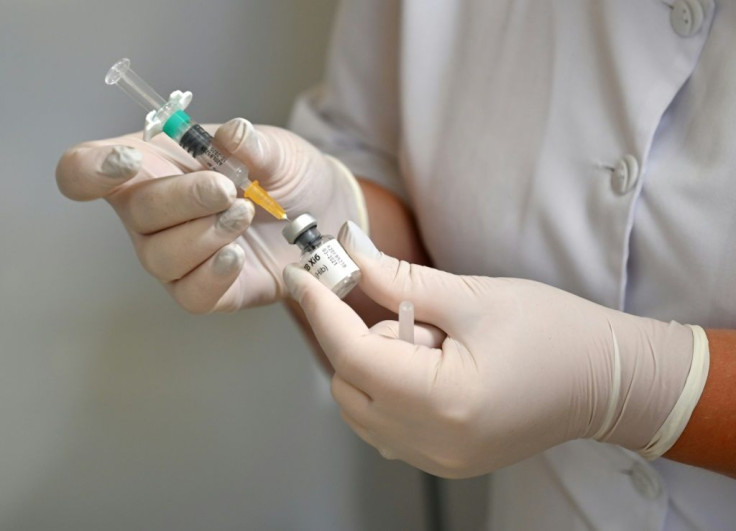Parents Still Show Some Discomfort With Getting COVID-19 Vaccines For Their Children
Parents are still showing hesitation about getting their children vaccinated despite the recent approval of COVID-19 vaccines by the federal government.
On Thursday, the Kaiser Family Foundation (KFF) released the results of a survey it conducted to gauge parents’ attitudes about getting their children vaccinated. Overall, it found that parents were still cautious about the vaccine or needed more information, especially for younger children.
According to the results, parents' attitudes towards vaccinating their children gradually rose between April and September 2021 before stagnating by November. For parents of children aged 12 to 17, 50% said that they had vaccinated their child or would do so "right away".
In contrast, 30% of parents in this group said that they would "Definitely not'' get their child vaccinated with 4% saying they would only do so if required. Notably, the portion of those who said they would not vaccinate their teenager appeared to rise from 20% in July to 30% in November.
When it comes to younger children aged 5 to 11, parents as a whole were more skeptical. As of November, the month when vaccines were approved by the FDA for young children, a total of 16% of surveyed parents said they had their child vaccinated and 13% said they would do so in the future.
Twenty nine percent said they would not vaccinate their child, but the largest single group was those parents who would "wait and see" before making a vaccination decision. They numbered in at about 32% of all respondents.

Some of this hesitation can be explained by the vaccines for younger children only being approved very recently. However, its authorization by the FDA for use has done little to change either the minds of the hesitant or those who were adamantly against vaccinations.
Why parents remain skeptical of the vaccine has been debated for some time, but what the KFF found was the most common reason was a stated need to get more information. Eighteen percent of surveyed parents of those 5-11 and 17% with 12-17 year olds listed a lack of information or a need to do more research as the main reason for their hesitancy. Side effects in their children was the second most cited reason with 14% concerned about them in 5-11 year olds, but only 8% for those 12-17.
As previously noted, there is a clear partisan dimension to vaccine skepticism as well as demographic differences based on race and ethnicity.
Democrats and independents were nearly twice as likely to have vaccinated their children or intend to than Republicans in the survey. This also held true in perceptions of the danger of being infected with COVID-19 versus being vaccinated with Republicans about twice as likely to consider vaccination the bigger risk.
Most parents say #COVID19 is a bigger threat to their kids than the vaccine, but there’s a partisan divide on this question.
— KFF (Kaiser Family Foundation) (@KFF) December 9, 2021
About 6 in 10 Republican parents say the vaccine is a bigger risk to teens, compared to about 1 in 6 Democratic parents. https://t.co/vYvCRJMdfX pic.twitter.com/tg4QGGODHb
Across racial lines, Hispanic parents were the most likely to report they vaccinated their children at 62% followed by Black parents at 48%. White parents trailed Black ones at 42% but they were the most likely at 38% of respondents to say they would not get their child vaccinated.
Finally, Black and Hispanic parents were more likely to report concern about issues accessing COVID-19 vaccines in the first place.
Forty three percent of Black parents and 47% of Hispanic ones worried that they would not be able to get time off work to vaccinate or care for their children experiencing side effects versus 23% of white parents. Black and Hispanic parents were also more than twice as likely than white ones to report worries about getting a vaccine from a trusted source.
© Copyright IBTimes 2024. All rights reserved.





















